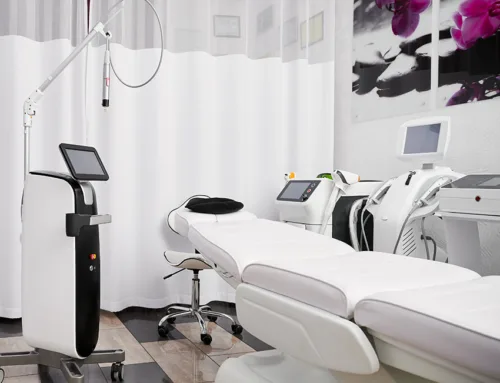What is Healthcare Market Research?
Ever wondered how healthcare marketing research shapes exceptional patient experiences while fueling business growth? By delving into intricate market insights, healthcare providers can fine-tune their services and seamlessly align with patient expectations. In this comprehensive guide, we delve into the multifaceted realm of healthcare market research, highlighting its crucial role in strategic decision-making and outlining actionable methods to leverage this data for your organization’s benefit.
Key Takeaways
- Healthcare market research is essential for understanding patient preferences and behaviors, enabling healthcare providers to offer more efficient and patient-aligned services, ultimately improving patient experience and outcomes.
- A combination of primary and secondary research methods is crucial in providing a holistic understanding of the healthcare market, which helps in strategic decision-making, assessing competition, and fostering innovation in healthcare services and products.
- Data gathered from healthcare market research must be ethically collected, securely stored, and effectively analyzed to influence enhancements in patient care, inform business strategies, and measure impacts on both financial performance and patient satisfaction.
The Crucial Role of Healthcare Market Research
Market research in the healthcare industry goes beyond standard business operations. It:
- Unravels the complexities of the healthcare market.
- Lends clear direction to strategic planning.
- Boosts patient care by gathering and analyzing data regarding industry movements and consumer behavior.
Market research can help healthcare providers gain insights into patients’ desires and expectations. Understanding these preferences enables organizations to offer more tailored healthcare services, leading to enhanced patient experiences. The transformation in a patient’s encounter with a healthcare provider can be remarkable when services are aligned with their needs as discerned from market research findings.
Establishing precise objectives is crucial for conducting effective market research, similar to selecting a specific destination on navigation technology. With clearly articulated aims, medical service providers can forge strategies that cater specifically toward satisfying the requirements and tastes of their intended demographic, thereby raising brand recognition and fostering growth within their patient base.
Healthcare entities seeking a deeper understanding of how patients behave and perceive their care regard market research as exceedingly beneficial. These valuable perspectives are instrumental in improving both patient outcomes and overall satisfaction levels, concurrently supporting broader business development goals within this sector.
Primary vs. Secondary Healthcare Market Research Methods
In the healthcare industry, integrating both primary and secondary research methodologies is crucial. Just as a compass provides complete navigation, combining these research approaches offers comprehensive insights into the healthcare market.
Primary Research Techniques
Healthcare research often commences with primary research methods, where focus groups, interviews, and surveys are key instruments. These techniques engage directly with patients and healthcare professionals to extract novel insights unavailable via secondary means.
Quantitative research within the healthcare sector deals with data that can be counted and measured, akin to enumerating eateries on a city street. It yields explicit statistics that detail aspects of the market landscape. In contrast, qualitative research probes subtler dimensions such as attitudes and motivations among individuals in the health domain, similar to soliciting personal dining preferences from residents for a more nuanced understanding.
Merging these two investigative paths produces mixed-methods research, a fusion that captures both breadth through numerical precision from quantitative studies and depth through rich narratives offered by qualitative investigation, thereby painting a fuller picture of dynamics at play within the healthcare industry.
Secondary Research Sources
Secondary research sources are a rich repository of knowledge, encompassing statistical reports, scholarly articles in scientific journals, and analyses from the medical market research sphere. This wealth of information offers critical insights into the healthcare industry.
In the context of competitive analysis, secondary research is instrumental for healthcare organizations to develop strategies. It allows these entities to evaluate their competitors’ strategies, product offerings, and shares within the market. Such an exercise can be likened to examining a competitor’s menu within the restaurant trade.
Enhancing Patient Experience Through Market Research
Market research offers significant benefits to the healthcare industry by identifying areas where patient experiences can be improved. For instance, just as restaurants benefit from knowing what dissatisfies their patrons, healthcare providers can use market research to pinpoint delays or sources of dissatisfaction, allowing for targeted improvements like better appointment scheduling systems. This enhances both operations and service delivery in healthcare settings.
Patient feedback is an indispensable asset within healthcare because it:
- Illuminates areas where satisfaction is high.
- Uncovers potential enhancements to services.
- Underpins data-driven decision-making.
- Fosters advancements in patient care quality.
Market research serves as a powerful tool for tailoring healthcare services more closely to patient preferences. Customization might include understanding preferred modes of communication or assessing interest in new health programs. By strategically addressing shortcomings in patient care, healthcare organizations can substantially improve the overall patient experience.
Healthcare Market Research Use Cases
Healthcare market research not only provides valuable insights but also serves as a catalyst for innovation. By identifying unaddressed needs and spotting new trends, it enhances product development processes and impacts the design and pricing strategies of products. Market research can be instrumental in recruiting healthcare professionals, similar to how it might influence what dishes are served at a restaurant.
In the dynamic world of healthcare, staying alert to changes is crucial. Market research provides ongoing surveillance over customer inclinations, levels of patient satisfaction, and industry shifts, creating solid foundations upon which robust healthcare policies and marketing initiatives can thrive.
Best Practices for Conducting Healthcare Market Research Surveys
Crafting survey questions for healthcare market research requires careful consideration. Questions must be clear, measurable, and easy to understand, structured to ensure a solid foundation for data collection—much like how a chef curates a menu that is concise, understandable, and appealing.
The success of such surveys hinges on more than just well-phrased inquiries. Achieving high response rates is crucial as it gauges both the volume and quality of information harvested from respondents, similar to how reviews reflect customer satisfaction in hospitality.
Once feedback has been secured, rigorous analysis using methodologies such as statistical comparisons or qualitative thematic assessments becomes crucial in interpreting the responses accurately. It’s similar to how culinary experts interpret diner reactions to refine their offerings.
Engaging with a market research firm requires providing comprehensive instructions, including your goals, specific insights you wish to obtain from the study, and ways you intend to utilize these findings effectively within your strategies.
Leveraging Technology in Healthcare Market Research
The healthcare industry is significantly impacted by the transformative powers of technology. The advent of artificial intelligence and big data has revolutionized the field, making patient care more efficient and individualized.
AI can be employed for market research tasks such as creating surveys automatically, cleansing collected data, generating reports efficiently, and analyzing participants’ emotions. These tools significantly enhance both the pace and precision of acquiring insights.
During times of crisis, like a global health emergency, online surveys emerge as robust tools for conducting market research with resilience. These digital questionnaires seamlessly adapt to meet pressing challenges while continuing to capture vital feedback from patients remotely. This approach provides critical information about patient experiences without compromising safety, mirroring how other sectors leverage technology during uncertain periods.
Ethical Considerations in Healthcare Market Research
Just as eateries must adhere to health and safety standards, all endeavors in healthcare market research must rigorously follow ethical norms. Ensuring that participants are fully informed about how their data will be used and securing informed consent is essential.
Safeguarding patient details is a pivotal element of ethical conduct in healthcare market research. This requires robust protection measures for storing sensitive information, limited access protocols, and clear explanations about how patient data will be used.
Navigating the balance between advancing scientific inquiry and upholding patients’ privacy rights is a complex challenge in healthcare market research. Clearly defined ethical codes are imperative, prioritizing respect for individual rights while fostering progress in medical knowledge.
Measuring the Impact of Healthcare Market Research
Market research in the healthcare sector plays a critical and influential role. It drives improvements in both product offerings and service delivery, leading to enhanced patient experiences and outcomes, similar to how customer feedback can elevate a dining establishment’s services.
Strategic market research can significantly alter the financial landscape for healthcare providers. By informing key business decisions that lead to increased revenue and reduced expenses, it bolsters overall efficiency within the healthcare realm.
Accurate interpretation of data gleaned from such research is essential for understanding insights about the target audience, competitors’ positions, and prevailing market trends. This information provides a robust foundation for informed strategic decision-making processes.
Moreover, the influence of thorough market analysis extends beyond data collection and scrutiny. Effectively communicating findings to all relevant stakeholders ensures that insights uncovered through research translate into tangible benefits across various facets of healthcare services.
Summary
Market research within the healthcare industry serves as an invaluable tool for navigating the intricate terrain of this sector. It informs strategic decision-making, propels patient care advancements, and fuels innovative breakthroughs. The importance of technology integration and adherence to ethical standards cannot be overstated in executing effective market research practices. Ultimately, the objective of healthcare market research is to comprehensively understand patient requirements, refine their healthcare experiences, and revolutionize the delivery of healthcare services.









